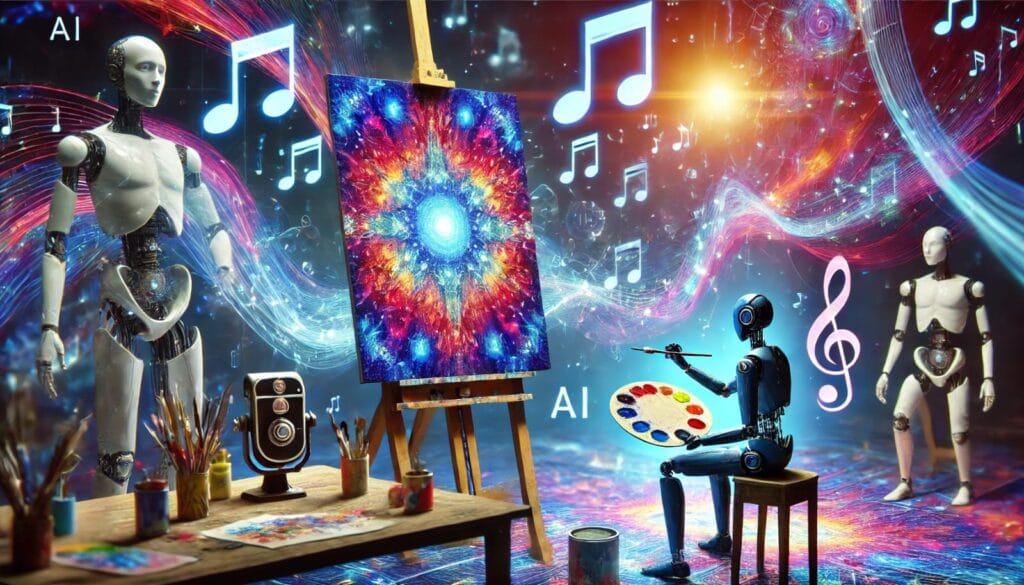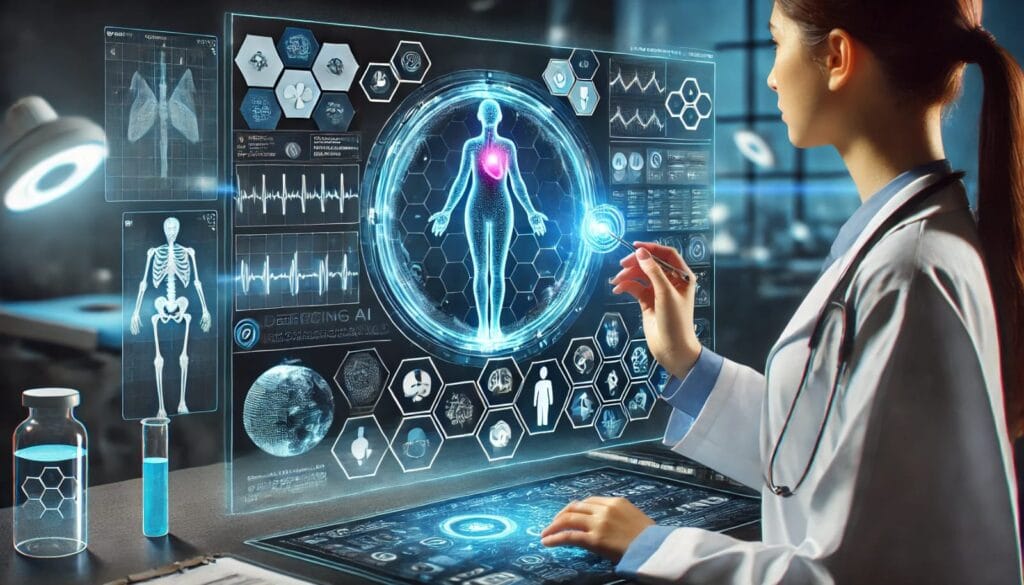Generative AI is revolutionizing multiple industries by enabling machines to create content, generate images, compose music, write code, and even design products autonomously. From chatbots like ChatGPT to AI-driven content creation, this technology is reshaping how businesses and individuals interact with artificial intelligence.
In this article, we will explore real-world applications of Generative AI, its impact on different industries, and how it is shaping the future of technology.
1. What is Generative AI?
Generative AI refers to artificial intelligence models that can generate new data, such as text, images, videos, music, or even 3D models, based on training data. Unlike traditional AI models that only analyze or classify data, generative AI can create new, unique outputs that resemble human-generated content.
Popular Generative AI Models
- GPT (Generative Pre-trained Transformer) – AI for text generation (e.g., ChatGPT)
- DALL-E – AI for image generation
- DeepDream – AI for artistic image generation
- Stable Diffusion – AI for high-quality artwork generation
- Jukebox (OpenAI) – AI for music composition
2. Top Generative AI Applications Across Industries
1. AI in Content Creation
Generative AI is transforming content writing, blogging, and digital marketing by producing high-quality, human-like text. It helps businesses generate:
- Blog posts
- Product descriptions
- Marketing copy
- Social media posts
- News articles
Example: OpenAI’s ChatGPT and Google’s Bard AI are used for SEO-optimized content generation.
2. AI in Image and Video Generation
Generative AI can create stunning images, animations, and deepfake videos based on textual descriptions.
- AI-powered tools like DALL-E, Stable Diffusion, and MidJourney generate high-resolution artwork.
- Deepfake technology is used in entertainment and social media.
- AI-generated video editing is revolutionizing YouTube, TikTok, and filmmaking.
Example: AI-powered face-swapping apps like Reface and DeepFaceLab create realistic digital avatars.

3. AI in Healthcare
AI is revolutionizing the healthcare industry by generating:
- AI-assisted medical imaging (X-rays, MRIs)
- New drug discovery using deep learning models
- Medical chatbots for instant patient interaction
Example: Google’s DeepMind AI helps in drug discovery and diagnosing diseases through image recognition.

4. AI in Finance & Banking
Generative AI improves fraud detection, financial forecasting, and automated trading.
- AI-generated personalized investment reports
- AI-powered stock market predictions
- Fraud detection in banking transactions
Example: JPMorgan’s AI model LOXM automates investment banking strategies.
5. AI in Marketing & Advertising
AI-driven marketing is enabling hyper-personalized advertisements and customer engagement.
- AI generates ad copies and email marketing campaigns.
- AI-powered chatbots offer 24/7 customer support.
- AI helps in customer behavior analysis and ad targeting.
Example: Meta (Facebook) and Google Ads use AI-generated ad creatives and personalized promotions.
6. AI in Music & Art Generation
Generative AI is disrupting music, painting, and digital art creation.
- AI-powered music composers like Jukebox AI generate unique songs.
- AI art tools like DeepArt and Runway ML create high-quality digital paintings.
Example: AI-generated artwork is being sold as NFTs in the digital marketplace.
7. AI in Software Development & Code Generation
Generative AI can write, debug, and optimize programming code.
- AI-powered tools like GitHub Copilot and OpenAI Codex assist developers in writing faster, bug-free code.
- AI generates low-code and no-code applications for businesses.
Example: Microsoft’s Copilot AI helps developers generate code snippets in real time.
3. The Future of Generative AI
With ongoing advancements, generative AI is expected to:
- Create AI-generated movies, music, and video games.
- Improve AI-generated virtual assistants for businesses.
- Enhance AI-human collaboration for research, education, and innovation.
Challenges of Generative AI
Despite its growth, challenges include:
- Ethical concerns (AI bias and misinformation)
- Copyright issues with AI-generated content
- Job displacement risks due to AI automation
Future Prediction: AI will become a co-creator with humans, assisting professionals in fields like writing, designing, coding, and research.
Conclusion
Generative AI is rapidly transforming industries by creating high-quality content, automating business processes, and improving user experiences. From marketing and finance to healthcare and entertainment, AI’s role is becoming indispensable.
As AI technology continues to advance, its potential applications are limitless. Whether you’re a business owner, developer, or content creator, leveraging generative AI can boost productivity and innovation.

